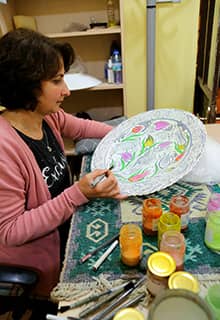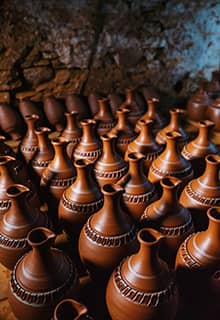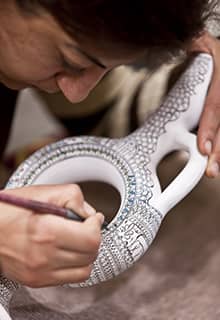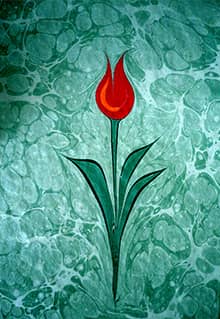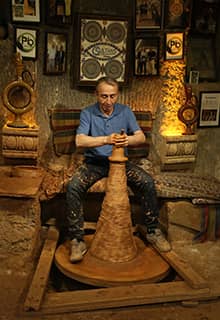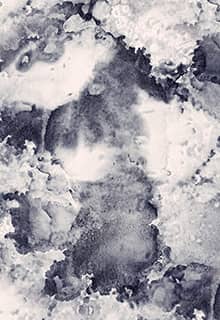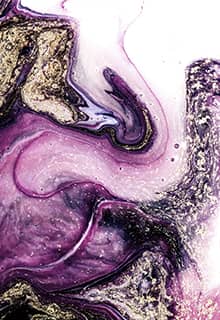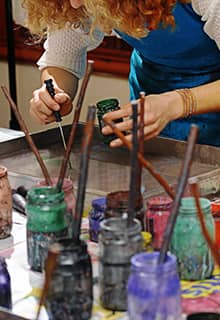

skill enhancement travel
Turkish Art of Marbling (Ebru)
The first forms of Ebru emerged in Central Asia in the 13th century and later spread to Anatolia. It is the traditional art of creating colourful patterns by sprinkling and brushing colour pigments on a pan of oily water and then transferring this pattern to a special paper.
Ebru is transmitted traditionally from one master to his/her apprentice through informal practical training. The basic principle of the training includes the introduction of the philosophy of Ebru. Achieving basic skills in making Ebru prints takes at least two years for beginners.
Instruction in the art of Ebru is offered by various institutions, NGOs, universities, municipalities and governorship offices through courses and workshops.
Different cultures, geographies and experiences contribute to the development of Ebru. One of the main characteristics of Ebru is that each work is unique and cannot be reproduced twice. Ebru has contributed to intercultural dialogue, reinforced social ties and makes prejudices fade away.
"Ebru: Turkish Art of Marbling" was registered on UNESCO's Representative List of the Intangible Cultural Heritage of Humanity.
The Traditional Craft of Making Ceramics
Glazed ceramic household items or wall panels made by firing clay decorated with various colours and motifs are known as “tiles” Tiling, on the other hand, refers to the craftsmanship that has been shaped the traditional Turkish tile art since 12th century with its own specific production and adornment techniques like "minai", "luster", "polishing", "underglaze." It's estimated that more than 5,000 çini craftspeople exist in Türkiye.
Çini workshops have been operating since 14th century and the art form has played a crucial role for the identity of centres such as Kütahya, Iznik and Çanakkale. Kütahya is the centre of çini making and the city itself is selected as a member of UNESCO’s Creative Cities Network in the field of ‘‘Crafts and Folk Art.’’
The ethical standards, knowledge, techniques and rituals of çini making that were developed collectively throughout centuries have been conveyed to the present through master-apprentice interaction.
In Türkiye, there are 10 Vocational Schools and 37 Faculties of Arts that teach the art of tiles and ceramics.
"Traditional Craftsmanship of Çini-Making" was inscribed on the Representative List of Intangible Cultural Heritage of Humanity.

